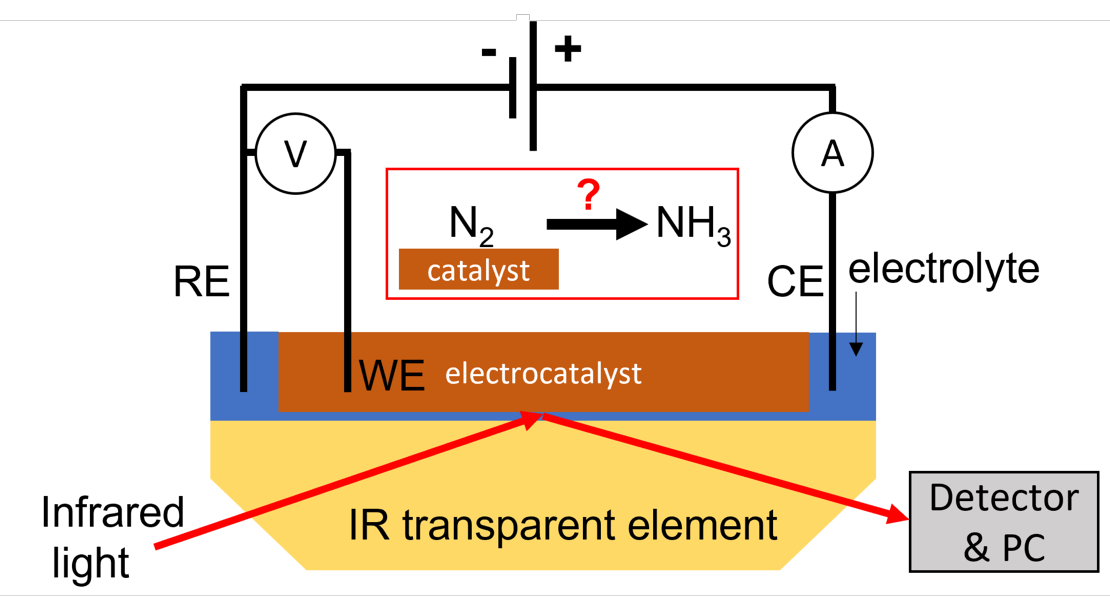Master assignment: Time-resolved infrared spectroscopy to uncover the mechanism of electrochemical N2 reduction
You will be supervised by asst. prof. dr. Georgios Katsoukis and prof. dr. Guido Mul from the photocatalytic synthesis group. For further info please reach out to me: g.katsoukis@utwente.nl
The technology to produce green electricity through wind turbines and solar cells is readily available and is being scaled-up as we speak. Green electricity can be used for electrochemistry to synthesize valuable products and fuels, for example through water splitting to make hydrogen, or converting CO2 to carbon monoxide for syngas, methanol, or higher hydrocarbons. The electrochemical N2 fixation to produce ammonia can be considered a “holy grail” reaction that is challenging to perform. A technological breakthrough will eventually replace the need for fossil fuels.
The electrochemical fixation of nitrogen to produce ammonia is an attractive alternative technology for the Haber Bosch process, since it does not require methane as feedstock and therefore prevents emission of very large quantities of CO2. This reaction can be mediated by lithium. However, practical implementation is impeded by low production rates, insufficient selectivity, and a low stability of the electrodes. In this assignment you will explore the reaction using high-end, time-resolved infrared spectroscopy to uncover the key parameters for developing a viable, more robust, and high-performance electrochemical process for sustainable ammonia production. You will construct an electrochemical cell that fits into the FTIR spectrometer and design an experiment which allows us to look at the conversion process on the millisecond time-scale using pulsed techniques. You will help interpreting complex infrared spectra, uncover new intermediate species, and determine the conversion mechanism of N2 to ammonia.
This assignment will offer you the unique opportunity to work in the field of electrochemical conversion of small molecules, which is regarded as one of the most demanded expertise in the Dutch job landscape for engineers and natural scientists. You will gain deep expertise in electrochemical techniques, which are useful for battery, fuel cell, electrolysis, and electrochemical synthesis research & development. You will also become an expert in using advanced techniques in infrared spectroscopy, which is used in every laboratory in industry and academia to study molecules.

